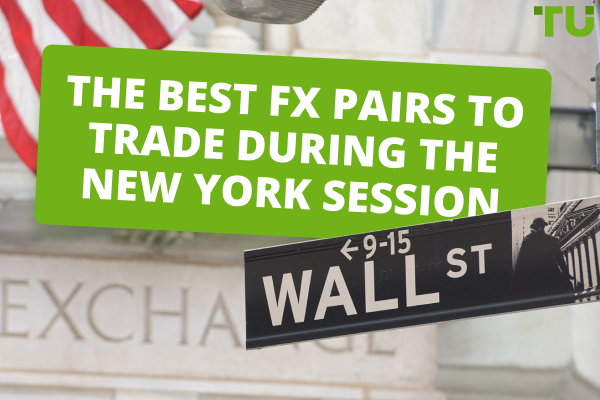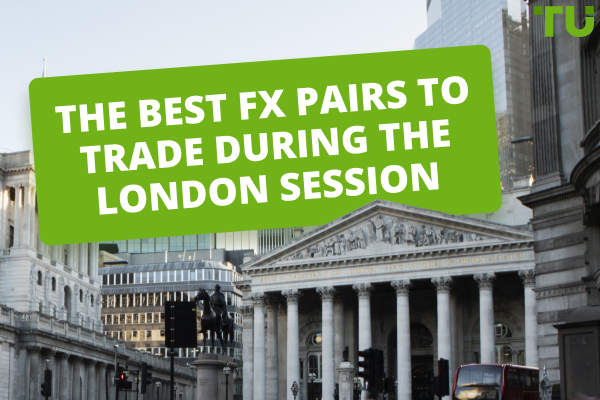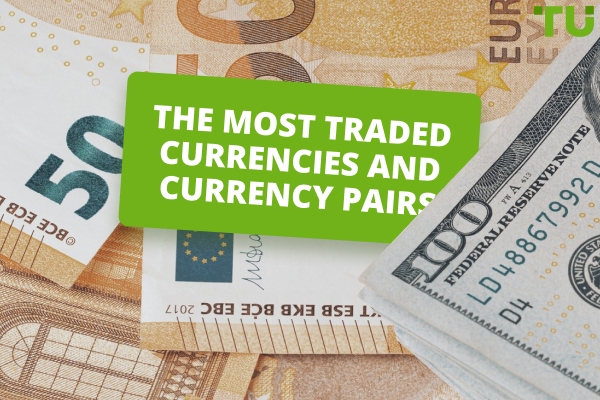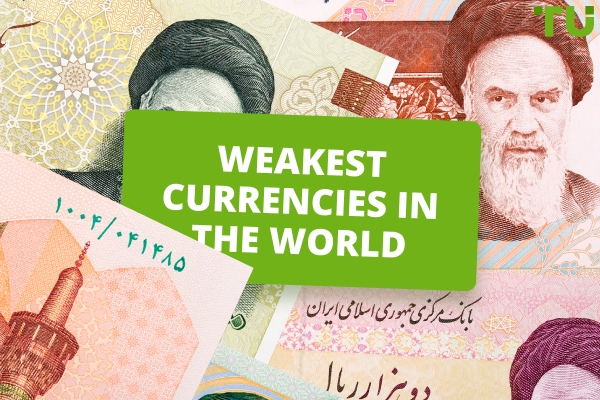Analyzing the Best Trading Hours for Crude Oil on Forex
The most active trading hours for crude oil on Forex are during the New York and London sessions. Market volatility is higher during the release of key economic data, so traders should pay attention to economic indicators that can impact oil prices.
Oil trading on the Forex market is a popular and potentially lucrative trading strategy. Understanding the factors that drive the price of oil and the best times to trade are essential for success.
This article will provide an overview of the factors that influence oil prices, the most volatile oil trading sessions, and strategies that beginners can use to optimize their trading.
By understanding the best times to trade oil, investors can maximize their profits and minimize their risks.
Global factors that influence oil volatility
The global market for oil is highly volatile due to the influence of a variety of factors. These factors include supply and demand dynamics, geopolitical tensions, economic indicators, and decisions from the Organization of the Petroleum Exporting Countries (OPEC).
Supply and demand imbalances can cause sudden price changes in the oil market. Additionally, geopolitical tensions can cause further disruption to the market, leading to increased volatility. Economic indicators, such as GDP, unemployment, and inflation, also play a role in affecting the demand for oil.
Decisions made by OPEC can have a significant impact on oil prices. The organization’s decisions regarding production levels and supply quotas can influence the overall market sentiment and lead to price fluctuations.
Natural disasters and changing weather conditions can also have a significant impact on oil production. Disruptions caused by these events can result in reduced supply and, subsequently, price hikes.
Given the volatile nature of the oil market, traders must be aware of the various factors that can affect the price of oil. They must also be knowledgeable about the best times to trade.
The most active trading hours for crude oil occur during the New York and London sessions. Market volatility is usually higher when key economic data is released. Therefore, traders should pay attention to economic indicators and be aware of oil inventory reports and OPEC announcements.
It is also important for traders to understand global time zones. Overnight trading can be less liquid and more volatile, so timing trades based on different time zones is crucial.
Understanding these factors and timing trades accordingly can help traders navigate the unpredictable nature of the oil market and make informed trading decisions.
How news impact oil prices
Oil price movements are often driven by news, making it essential for traders to be aware of how news can affect their trading strategies. Changes in fundamentals, such as unexpected supply disruptions, demand forecasts, new oil discoveries, extreme weather, economic data, and interest rate changes can all play a role in creating volatility.
Here are four key points that traders should consider when trading oil:
-
Monitor news reports closely for any events that could affect supply or demand
-
Pay attention to economic data releases and interest rate decisions
-
Be aware of potential geopolitical tensions
-
Keep an eye out for extreme weather conditions that may disrupt production
Traders must be prepared to act quickly when news breaks as the markets can move quickly in response. By understanding news and being able to interpret the impacts of news events, traders can increase their chances of success in the markets.
Most volatile oil trading sessions
Understanding the global time zones and the key economic data releases is essential for timing trades and predicting price movements in oil markets. The best times for trading oil on Forex usually occur when the New York and London sessions overlap, as this is when the market is most liquid and volatile.
The US Energy Information Administration (EIA) releases its inventory report each Wednesday, which can cause a sudden increase in volatility. During the Asia session, the American Petroleum Institute (API) also releases its weekly inventory report, which can also cause notable swings in prices.
On the other hand, the Sydney and Tokyo sessions, as well as summer holidays, often experience lower volatility due to thin trading volumes.
To trade oil successfully, being aware of these different factors and choosing the right times to enter and exit trades is very beneficial.
Optimizing oil trading strategy for beginners
Oil trading can be lucrative but also challenging, especially for beginners. Optimizing your trading strategy is crucial for success, and here are some insightful tips to help you navigate the volatile waves of oil trading:
-
Trade during high volume sessions: Engaging in trading during high-volume sessions ensures tighter spreads and more efficient order execution. This is because the increased liquidity during these periods reduces the cost of trading (through narrower spreads) and diminishes the risk of price gaps that could adversely affect stop-loss orders. Consequently, your orders are more likely to be filled at your desired levels, providing a more predictable trading environment
-
Be news-savvy: The oil market is exceptionally sensitive to global events, including geopolitical developments, inventory reports, and OPEC decisions. As a beginner, it's recommended to follow a news release schedule diligently and avoid trading during major news announcements. These events can cause significant volatility, and unless you are an experienced news trader, it's wise to wait until the commodity market settles to make more informed decisions
-
Focus on technical levels: While the fundamentals are the driving force behind the long-term trends in oil prices, beginners may find it challenging to predict these complex factors accurately. Instead, focus on technical analysis to identify key levels of support, resistance, and trend patterns that provide specific entry and exit points. Technical analysis can offer a more visual and structured approach, helping you navigate the market's volatility
For a deeper understanding of the intricacies of oil trading, consider expanding your knowledge through comprehensive resources. One such is our article on trading oil futures contracts that elaborates on the nuances of trading oil. This guide will provide you with a more profound comprehension of the market, aiding in the refinement of your trading strategies.
By adhering to these guidelines and continually seeking further education, you'll set the stage for a more informed and strategic approach to your oil trading endeavors in the Forex market. Remember, patience and consistent learning are your allies on this journey.
Best Forex brokers 2024


FAQs
How to trade oil in Forex? CFDs
To trade oil in Forex, traders often use Contracts for Difference (CFDs), which allow you to speculate on the price movements of oil without owning the actual commodity, providing flexibility and accessibility in market participation.
What is the minimum deposit required to trade oil on Forex?
The minimum deposit required to trade oil on Forex varies by broker, but it can be as low as $100. Traders should consider risk management strategies and the specifics of their trading plan to determine an appropriate amount.
What is the leverage available for oil trading on Forex?
Leverage for oil trading on Forex can range widely depending on the broker and the regulatory environment, but it's commonly seen from 1:20 to as high as 1:100 or even more. Traders should use leverage cautiously, as it increases both potential profits and potential losses.
Is it better to trade WTI or Brent crude oil contracts?
The choice between trading WTI (West Texas Intermediate) or Brent crude oil contracts depends on the trader's market knowledge and strategy. Both have different regional influences, with WTI primarily tied to U.S. market indicators and Brent to European and global market trends, but they often follow similar price patterns. Consider factors like trading volume, market news, and contract specifications before deciding.
Glossary for novice traders
-
1
Risk Management
Risk management is a risk management model that involves controlling potential losses while maximizing profits. The main risk management tools are stop loss, take profit, calculation of position volume taking into account leverage and pip value.
-
2
Cryptocurrency
Cryptocurrency is a type of digital or virtual currency that relies on cryptography for security. Unlike traditional currencies issued by governments (fiat currencies), cryptocurrencies operate on decentralized networks, typically based on blockchain technology.
-
3
Futures contract
A futures contract is a standardized financial agreement between two parties to buy or sell an underlying asset, such as a commodity, currency, or financial instrument, at a predetermined price on a specified future date. Futures contracts are commonly used in financial markets to hedge against price fluctuations, speculate on future price movements, or gain exposure to various assets.
-
4
Economic indicators
Economic indicators — a tool of fundamental analysis that allows to assess the state of an economic entity or the economy as a whole, as well as to make a forecast. These include: GDP, discount rates, inflation data, unemployment statistics, industrial production data, consumer price indices, etc.
-
5
Leverage
Forex leverage is a tool enabling traders to control larger positions with a relatively small amount of capital, amplifying potential profits and losses based on the chosen leverage ratio.
Team that worked on the article
Vuk stands at the forefront of financial journalism, blending over six years of crypto investing experience with profound insights gained from navigating two bull/bear cycles. A dedicated content writer, Vuk has contributed to a myriad of publications and projects. His journey from an English language graduate to a sought-after voice in finance reflects his passion for demystifying complex financial concepts, making him a helpful guide for both newcomers and seasoned investors.
Dr. BJ Johnson is a PhD in English Language and an editor with over 15 years of experience. He earned his degree in English Language in the U.S and the UK. In 2020, Dr. Johnson joined the Traders Union team. Since then, he has created over 100 exclusive articles and edited over 300 articles of other authors.
Mirjan Hipolito is a journalist and news editor at Traders Union. She is an expert crypto writer with five years of experience in the financial markets. Her specialties are daily market news, price predictions, and Initial Coin Offerings (ICO).











